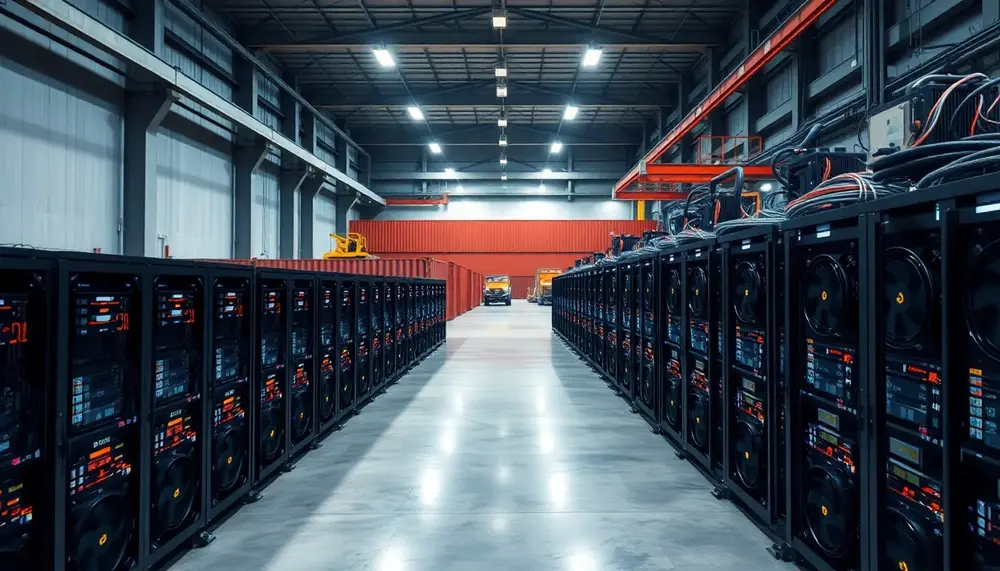Table of Contents:
US Tariffs Increase Bitcoin Mining Costs
According to IT-Boltwise.de, the recent increase in US tariffs on Chinese goods has significantly raised the costs associated with Bitcoin mining in the United States. The tariffs, which have been increased by 125%, have led to a cumulative rise of 145% in import duties on Chinese products since the Trump administration. This has created substantial challenges for the Bitcoin mining industry, as many companies rely heavily on Chinese hardware.
Manufacturers such as Bitmain and MicroBT, based in Southeast Asia, are particularly affected, as their products have become significantly more expensive in the US market. Consequently, American miners are facing higher operational costs, prompting some companies to consider relocating their operations abroad to remain competitive. While some firms are exploring domestic production and supply chain diversification, the overall impact could slow the growth of the US Bitcoin mining industry and shift activities to more cost-effective regions.
Get $500 free Bitcoin mining for a free testing phase:
- Real daily rewards
- 1 full month of testing
- No strings attached
If you choose to buy after testing, you can keep your mining rewards and receive up to 20% bonus on top.
“The diversification of supply chains and the promotion of domestic production could be decisive factors for the future of Bitcoin mining in the US,” experts noted.
Key Takeaways:
- US tariffs on Chinese goods have increased by 125%, raising Bitcoin mining costs.
- Companies like Bitmain and MicroBT are significantly impacted, leading to higher hardware prices.
- Some US miners are considering relocating operations abroad to mitigate costs.
Tether Advances Bitcoin Decentralization with OCEAN Mining
IT-Boltwise.de reports that Tether, a leading digital asset company, has announced its decision to deploy its current and future hashrate on OCEAN, a decentralized Bitcoin mining pool developed by Bitcoin Core contributor Luke Dashjr. This move highlights Tether's commitment to enhancing the resilience, transparency, and decentralization of the Bitcoin infrastructure.
OCEAN allows miners to create their own block templates using the open-source DATUM protocol, reducing reliance on centralized intermediaries and increasing censorship resistance within the Bitcoin network. Tether plans to implement the DATUM Gateway software globally, including in bandwidth-limited regions such as parts of Africa, to ensure operational diversity and global competitiveness. Paolo Ardoino, CEO of Tether, emphasized the importance of decentralization for the integrity of the Bitcoin network, stating that this initiative aligns with Tether's broader mission to strengthen Bitcoin against centralizing forces.
“Tether’s participation is a strong signal that decentralization remains a core priority for Bitcoin’s future,” said Luke Dashjr, CTO of OCEAN.
Key Takeaways:
- Tether is deploying its hashrate on OCEAN to promote Bitcoin decentralization.
- The DATUM protocol enables miners to create unique block templates, enhancing censorship resistance.
- Tether is expanding its mining operations to underdeveloped regions, including parts of Africa.
Sources:
















